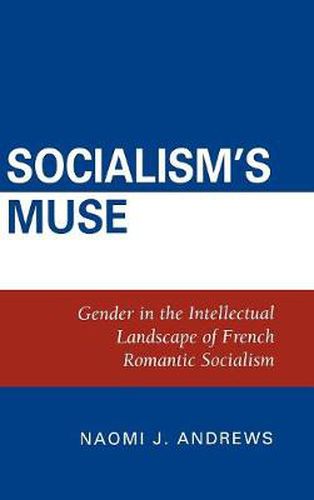Readings Newsletter
Become a Readings Member to make your shopping experience even easier.
Sign in or sign up for free!
You’re not far away from qualifying for FREE standard shipping within Australia
You’ve qualified for FREE standard shipping within Australia
The cart is loading…






Socialism’s Muse addresses the problematic and longstanding relationship between socialism and feminism from the perspective of the origins of both movements in early nineteenth century France. Focusing on the works of a number of socialist writers of the 1830s and 1840s, the book explores the role of gendered imagery in the articulation of the ideal social community, the nature of the individual, and the ties that bind the two together. Naomi J. Andrews argues that the way romantic socialists conceptualized the human community - in gendered terms, specifically - determined both the emergence and limitation of what is retrospectively termed feminism. Providing an illuminating analysis of the intellectual underpinnings of women’s exclusion from socialism in its earliest organized manifestation, Socialism’s Muse is valuable reading for scholars of women’s studies, French history, and intellectual history alike.
$9.00 standard shipping within Australia
FREE standard shipping within Australia for orders over $100.00
Express & International shipping calculated at checkout
Socialism’s Muse addresses the problematic and longstanding relationship between socialism and feminism from the perspective of the origins of both movements in early nineteenth century France. Focusing on the works of a number of socialist writers of the 1830s and 1840s, the book explores the role of gendered imagery in the articulation of the ideal social community, the nature of the individual, and the ties that bind the two together. Naomi J. Andrews argues that the way romantic socialists conceptualized the human community - in gendered terms, specifically - determined both the emergence and limitation of what is retrospectively termed feminism. Providing an illuminating analysis of the intellectual underpinnings of women’s exclusion from socialism in its earliest organized manifestation, Socialism’s Muse is valuable reading for scholars of women’s studies, French history, and intellectual history alike.